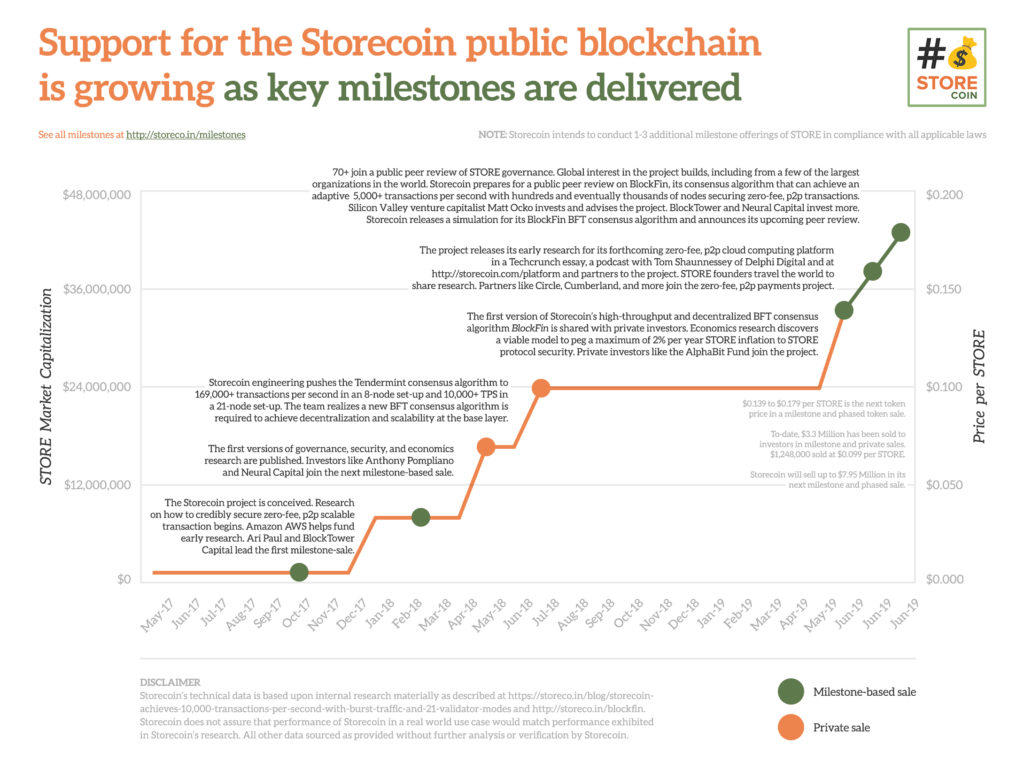“If we’re right about our thesis, a new computing platform emerges — one powered by open and tokenized data.
Not only do developers get paid when the Google’s of the world want to query/crawl/search their data (and devs can even share this data revenue with users), developers can build with the open data streams and open APIs of other developers (who get paid when the developers access their data stream; 1MB data = 1 datacoin).
I think this can change the world. It’s a new computing platform powered by open data.
Storecoin is merely incentivizing it.” – Chris McCoy, CEO of Storecoin
June 15, 2019
Consumers are more than ever aware of and feeling the effects of predatory business practices from Big Tech, as data breaches, deplatforming, and policy shifts occur at alarming rates. Washington is scrambling to gain control over the situation.
Consumers favor alternative approaches to data handling instead of a mass break up of today’s tech companies. Consumers want alternative business models that allow people to leverage their data as an asset they can manage.
What is Storecoin?
Storecoin is a zero fee payments and peer-to-peer cloud computing blockchain that will enable such an alternative by helping transform data into money. Here’s how it works.
The Storecoin project starts with a zero-fee settlement layer. At the heart of this is Blockfin, our leaderless, Byzantine Fault-Tolerant (BFT) consensus algorithm that solves for scalability and decentralization. Thanks to Blockfin and a credibly low inflation policy, $STORE functions as a sound money for the entire Storecoin ecosystem.
As security with scalability is proven, Storecoin will open up miner (or, as we call them “dWorker’s”) participation to anyone in the world. From there, the secure settlement layer can evolve into a p2p cloud platform for the decentralization of data and the creation of new, zero-fee tokenized apps (tApps).
Put simply, we see many applications that want to experiment with their own native tokens to incentivize work and other activities, to coordinate their groups, and to experiment with as yet undreamed of use cases.
The first generation of ICO tokens created the issue of manufactured payment tokens, limited in use cases, and unbacked by anything but speculation. A weak substitute for money, and lacking decentralized governance.
Incentivize Developers, and They Will Come
Application developers in the Storecoin ecosystem can only issue tokens that are backed by the data their application produces, giving them intrinsic value based on the demand that third parties have for that data. Because data is the oil of the new economy, this creates an opportunity for the dWorkers in the Storecoin ecosystem to get rewarded for servicing and securing the network of applications, while providing a more profitable hosting solution for app developers than today’s centralized alternatives like AWS.
What’s more, this tokenization of data creates new opportunities to address consumer concerns like never before. First, enterprising developers who want to offer something different might take advantage of data tokenization to help cut consumers in to their business models, finding new alignment and synergy with their users. Even if users aren’t being paid for their data, per se, tokenization makes data much more trackable and transparent, giving users new insight into how their data is being used and providing them more power to fight against what they don’t like.
Underpinning this all is a shared security network where the miners or dWorkers of the Storecoin system ensure that the entire network is protected from malicious attack.
For Storecoin, it is imperative that this new data paradigm doesn’t simply replace one intermediary with another, however. That’s why the entire project will be governed through a system that enshrines checks and balances and the separation of powers. Our governance system makes it impossible for any one group – developers, miners, or the nonprofit foundation – to warp the system to benefit them above the others.

Announcing the next Storecoin Milestone Token Offering
Storecoin is launching its long-awaited Milestone Token Offering on Thursday, June 20th at 12pm PT. This Regulation D and Regulation S securities offering aims to bring in over 500 new wallets and up to $4.97 Million of Treasury into the project.
Since inception, Storecoin has taken a strong anti-ICO stance and instead has committed to growing Treasury on the basis of achieving key project milestones. These global MTOs focus Storecoin on transparent project execution while building long-term trust with its growing community.
The sale will be offered as a sequence of three phased pricing rounds. Each sale phase will be offered on a first-registered and first-funded basis. Once a phase is fully registered and funded, the next phase will open up and be offered to the next registered buyer.
The proceeds from this sale will be used for a number of vital project building activities, including:
- Releasing the alpha network for BlockFin, our parallel and pipelined consensus engine
- Multiple security audits for our BlockFin BFT consensus algorithm
- Begin hosting STORE meet-ups around the world
- Releasing our Governance, Economics, and Security Papers for public peer review
- Hosting the first-ever Storecoin Conference, a research and governance global gathering
Existing Storecoin investors include Ari Paul of BlockTower, Anthony Pompliano, Matt Ocko, AlphaBit Fund, Ari Nazir of Neural Capital, and more.
Register for the sale at: http://sale.storecoin.com.
Links
E-mail: [email protected]
Website: http://storecoin.com
Telegram Group: http://t.me/storecoin
Twitter: http://twitter.com/storecoin

